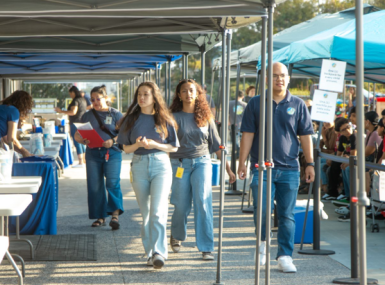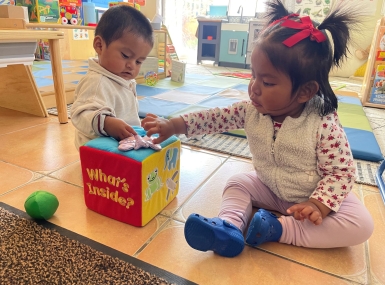Author

Charlie Ban
Upcoming Events
Related News

Key Takeaways
When the first attempt at a behavioral health funding levy failed in Larimer County, Colo., Jody Shadduck-McNally took it personally. Then, she made it personal.
Her years of involvement as a volunteer, hoping to improve the county’s behavioral service offerings, were fueled by the suicide of someone close to her after years of mental health struggles.
“This is something that has been important to me since 2010,” she said. “We’ve always been advocating for a better system than just sending people into mental health crisis and behavioral health crisis to the ER, except for those to have a medical emergency.
“In 2016, the voters didn’t support those initiatives, but we didn’t take no for an answer.”
Shadduck-McNally spent the next three years lobbying influential community groups extensively, giving what she estimated added up to 70 presentations about the benefits of more robust behavioral health care offerings. This paralleled her growth as a volunteer, first with her children’s school district, then on the county planning commission and a participant in the yearlong county government orientation program.
“I went to every group that was listed, whether there were two people or 200,” she said. “Everywhere I went, I asked people to raise their hand if they knew someone with a behavioral health issue or substance abuse issue or mental health issue.”
And roughly 85 percent of the time, she said, the whole room raised their hand. That rising awareness helped contribute to the 2018 passage of a 0.25 percent sales tax that is estimated to raise $18 million per year for 20 years.
Now, in her first term as a county commissioner, Shadduck-McNally is watching the Larimer County Behavioral Health Facility rise from a foundation she helped lay. The 55,000 square-foot building will support 64 beds and offer behavioral health triage services, professional mental health assessments, substance use diagnosis, crisis stabilization and short-term residential treatment with 23-hour observation.
“Our ultimate goal is to have really strong partnerships with those who are providing levels of outpatient care who don’t need residential beds to provide their levels of care,” said Laurie Stolen, behavioral services director, during a meeting with neighbors near the facility’s site.
Stolen is one of six staffers whose position is funded by the sales tax revenue.
What helped gain support among the public, Shadduck-McNally said, was mapping the service gaps throughout the county and focusing on illustrating the need for funding to build a continuum of care.
While the facility is under construction, with a 2023 opening date targeted, the county is awarding impact grants to achieve the goals that will eventually be covered by behavioral health services. Grant recipients define the problem they plan to address, proposing solutions to improve the challenges faced in the communities they serve.
The county identifies the trends that drive needs and direct money accordingly, awarding $6 million through 110 grants to providers since 2019. The current focus is on youths, particularly as they deal with the consequences of interruptions in their formative years, and addresses suicide, which, until 2021, had seen a steady increase in Colorado and Larimer County. Shadduck-McNally wants to seize that lull and use that small victory as fuel to address the problem with more resources.
The behavioral health center also aims to provide job training opportunities to help build the behavioral health workforce, to meet a need that the county itself will be perpetuating.
“We need more workforce in behavioral health,” Shadduck-McNally said. “We can be a place where people come to do their internships or work in these centers and get trained and help provide a workforce that is desperately needed at this time.”
Attachments
Related News

California county program helps spark student careers
San Diego County created a win-win program to fill open staff vacancies and give college students real-world work experience.

California county, non-profit help launch child-care startups
Adrianna Segura, a Stanislaus County, Calif. mother of two, was licensed to be a home-based child-care provider, but she didn’t know the first thing about starting a business. She knew how to take care of children, but she wasn’t sure how to file taxes, create contracts or what her rate should be.

Insights from county leaders on the future of early childhood care and education
NACo's Prenatal-to-Three breakfast and listening session gathered county leaders to identify barriers, explore solutions and support local leaders advancing their priorities.